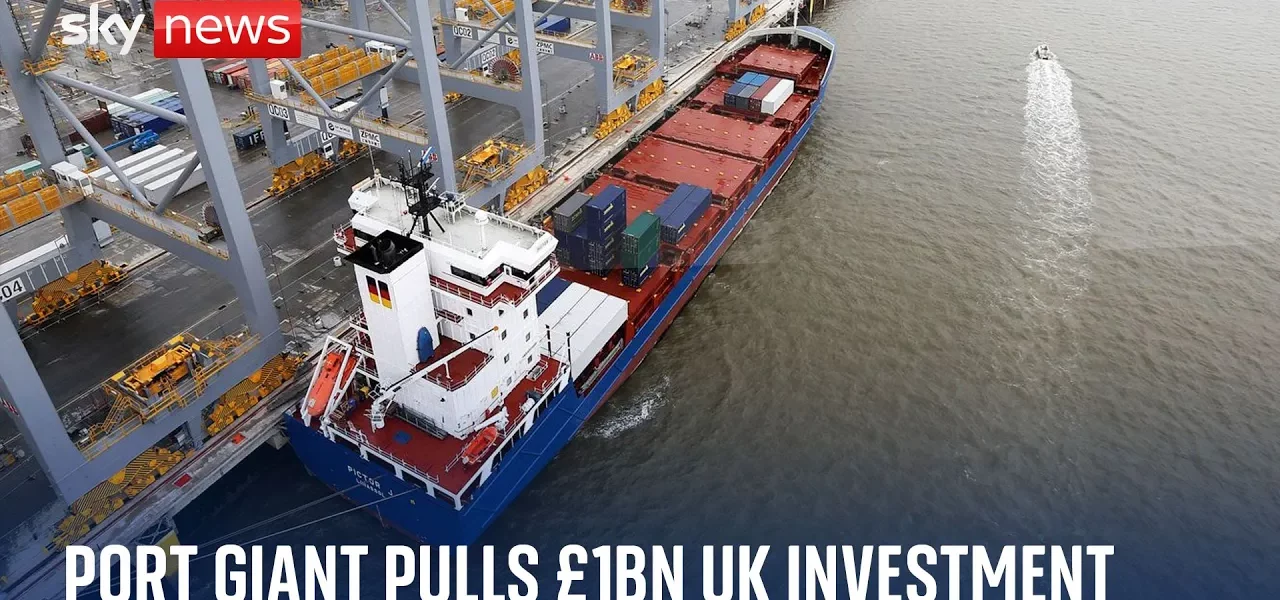London Gateway: Britain’s Future Largest Port and Its Expansion Plans

London Gateway is on track to become Britain’s largest port, handling nearly 2 million containers annually. This article delves into the significant expansion plans initiated by DP World, the controversies surrounding them, and the broader implications for the UK economy and investment landscape.
Introduction
London Gateway is a key player in the UK’s maritime infrastructure, poised to solidify its position as the largest port in Britain following a proposed £1 billion expansion plan by its owners, DP World. The port’s ability to manage nearly 2 million containers each year underscores its strategic importance to the UK economy. However, the announcement of this expansion has been marred by political controversies and public backlash, particularly concerning labor practices. This article explores the intricacies of London Gateway’s expansion, the political climate surrounding it, and its significance for the UK’s economic future.
The Expansion Plans of London Gateway
DP World’s ambitious plans for expanding London Gateway are critical for enhancing the port’s capacity and efficiency. This section outlines the key aspects of the proposed expansion.
Investment Overview
The £1 billion investment aims to:
- Increase container handling capacity.
- Enhance logistics and supply chain capabilities.
- Attract more international shipping lines.
- Create thousands of jobs in the region.
Strategic Importance
The expansion is expected to bolster the UK’s position as a global trade hub by:
- Improving trade links with Europe and beyond.
- Reducing shipping times and costs.
- Facilitating the growth of e-commerce logistics.
Political Controversies and Reactions
Despite the potential benefits of the expansion, political tensions have arisen, particularly related to DP World’s subsidiary, P&O Ferries. The controversy has significant implications for the government’s investment strategy.
Labor Issues and Public Backlash
Two years ago, P&O Ferries faced backlash over its decision to sack seafarers, which drew public outcry and led to accusations of being a ‘rogue employer.’ This has affected the government’s ability to promote the investment positively:
- Deputy Prime Minister Angela Rayner described the actions of P&O Ferries as “outrageous.”
- Critics of the government have called for better labor practices and protections.
Government’s Response
In light of these controversies, the government’s reaction has included:
- Pulling back the announcement of the investment at a key summit.
- Struggling to maintain a steady course in attracting foreign investment.
- Facing criticism for its handling of trade union legislation.
Implications for the UK Economy
The ongoing situation with DP World and the London Gateway expansion has broader implications for the UK economy, particularly in terms of attracting foreign investment and fostering domestic economic growth.
Investment Climate
The current landscape shows a need for:
- Foreign investors to participate in UK debt and bond markets.
- Domestic businesses to increase their investment efforts, which have remained stagnant since the EU referendum.
- Clear and supportive policies to encourage international investment.
Future Challenges
As the government seeks to navigate these challenges, it must consider:
- The need for compromise with investors like DP World.
- Establishing a more favorable environment for business operations.
- Addressing labor concerns to maintain public confidence in the government’s economic strategies.
Conclusion
In summary, the expansion of London Gateway represents a pivotal opportunity for the UK to enhance its infrastructure and attract vital investment. However, the political controversies surrounding DP World and P&O Ferries highlight the delicate balance the government must strike between fostering economic growth and addressing labor rights. As the UK moves forward, it will be crucial to create a supportive environment for both foreign and domestic investors to ensure sustainable economic development. For more insights into the implications of investment in UK infrastructure, visit our related articles on [UK Economic Growth Strategies](#) and [Foreign Investment Trends](#).
“`




